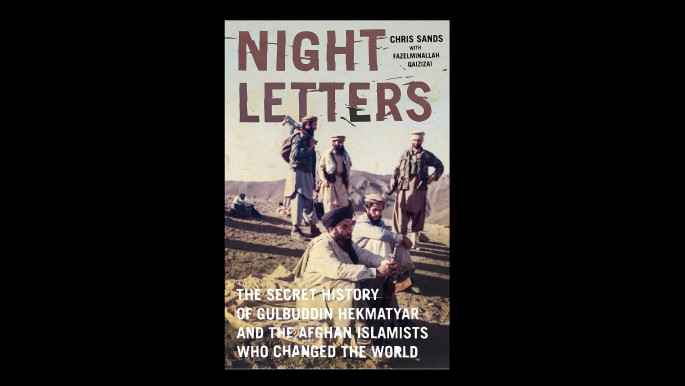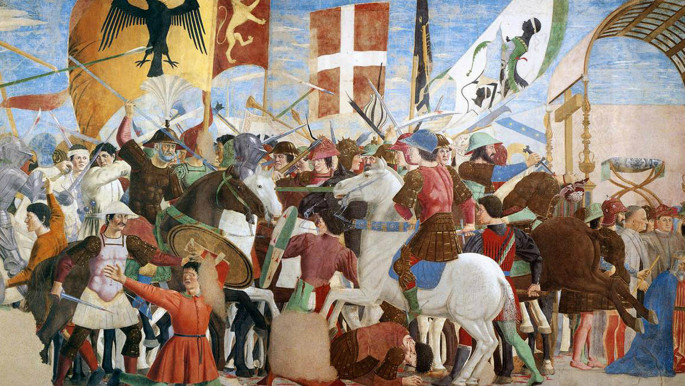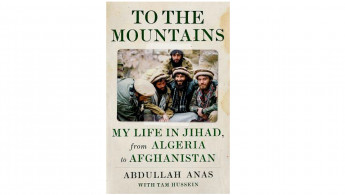To The Mountains: My Life in Jihad from Algeria to Afghanistan
The end of the last decade marked three anniversaries that left deep impacts on the Muslim world and shaped international relations over the last forty years.
In 1979, the Iranian Revolution, the siege of Masjid al-Haram in Makkah and Soviet invasion of Afghanistan in different ways profoundly reshaped the societies in which they occurred and created linkages and legacies that continue until this day.
The history and aftermath of the Afghan war is critically explored in this recent book, To the Mountains: My Life in Jihad, from Algeria to Afghanistan which is both a memoir and critical reflection by authors Tam Hussein and Abdullah Anas – a prominent figure among the Arabs that went to Afghanistan and was a protégée of Abdullah Azzam – who is considered as an architect of the anti-Soviet jihad.
Abdullah Anas's story is significant for being one of the few firsthand accounts of how Arab volunteers fought alongside Afghans against the Russians in the 1980s.
Like many young men of this era, he joined the war believing that it was a religious obligation for all Muslim males to liberate Afghanistan from Soviet occupation and that neglecting this duty could be considered sinful.
Hundreds of other youth from the Middle East were similarly persuaded and arrived in the 1980s and collectively became known as the "Afghan Arabs."
 |
Like many young men of this era, he joined the war believing that it was a religious obligation for all Muslim males to liberate Afghanistan from Soviet occupation and that neglecting this duty could be considered sinful |  |
The book details his experiences and observations of life and death across the mountains of Afghanistan and complex politics which led to the Soviet defeat in 1989. Anas came to know and disagree with many of the individuals that would later become notorious jihadi figures including Osama bin Laden, Ayman al-Zawahiri and Abu Musa al-Zarqawi.
He examines the brutal infighting that occurred between the mujahideen factions as they competed for influence and foreign finance and examines this bitter feuding between the two most well known rival camps of Ahmed Shah Massoud and Gulbuddin Hekmatyar.
 |
|
| Read more from The New Arab's Book Club: Night Letters: Gulbuddin Hekmatyar and the Afghan Islamists who Changed the World |
The retreat of the Russians created a power vacuum that deteriorated into civil war, laid the foundation for the emergence of al-Qaeda and rise of the Taliban.
Anas is especially candid about the human reality behind the rhetoric of jihad. He notes that ethical comprises made by people were corrupted by power, position and money. He laments the simple mindedness of the men he fought with, their lack of political maturity and his own lack of awareness of the Cold War geopolitics as well as the strategic interests of United States, Saudi Arabia and Pakistan in supporting the jihad against Russia.
His mentor Abdullah Azzam was also murdered in 1989 and his death contributed to a younger generation of fighters becoming influenced by takfiri ideologues in a similar way to those who became drawn to the likes of the Islamic State group [IS] today.
Young men from places such as Algeria, Egypt, Tunisia and Libya were left stranded in Afghanistan and Pakistan after the war – reluctant to return home for fear of being arrested. Most did leave later and became nomadic warriors joining various other jihads in Algeria, Bosnia and Chechnya.
The latter part of the book is more introspective as Anas reflects on the consequences of foreigners joining other people's wars; "Looking back now as a Muslim activist, I believed in simple slogans and phrases" and he is "unsure about what was actually achieved... We fought, we killed, we sacrificed and for what?"
 |
The Muslim world can easily find martyrs but what it urgently and desperately needs are statesmen, negotiators, advisors, scholars, and intellectuals who understand their times and peoples |  |
His advice to fellow aspiring mujahideen is particularly meaningful, warning against the naïve motivations of young men; "Youthful excitement of contemplating battle, even death, the moral certainty of the struggle, the camaraderie of like-minded young men, above all the lack of concern with what comes after... The Muslim world can easily find martyrs but what it urgently and desperately needs are statesmen, negotiators, advisors, scholars, and intellectuals who understand their times and peoples".
He now thinks that things may have turned out differently in Afghanistan "if only the Arab world had sent diplomats, journalists and humanitarian workers, everyone might have been better off".
Abdullah Anas opposes the idea of a global jihad and keen to distinguish between the defensive jihad in which he participated from the more recent phenomena of jihadism which emerged during that period.
However, he unapologetically still believes in "the necessity of defensive jihad as long as there is oppression and occupation".
 |
| Read more from The New Arab's Book Club: Muhammad: Prophet of Peace Amid the Clash of Empires |
One wonders what he would consider as a valid defensive jihad today, who defines it and where it is taking place.
After spending nearly a decade fighting in Afghanistan, he left disappointed and disheartened and eventually became a political exile in London. That experience and post-war activism over the last 25 years led him to the realisation that "being a peacemaker is the greatest jihad".
Contemporary Afghanistan is still racked by conflict three decades after the Soviet Union withdrawal and harvested many bitter fruits. Al-Qaeda was conceived in its jihad training camps and many of its graduates went on to wreck havoc across the world, spawning IS and other takfiri jihad movements.
Afghanistan, was also the first site of retaliation after the 9/11 attacks and the region remains volatile.
Active theatres of conflict in Iraq, Syria, Somali and many other places are led by individuals claiming to be practicing jihad – often killing fellow believers in the name of Islam and raising many questions about the use of force in dealing with political conflict in Muslim-majority societies.
This important memoir compliments a similar book by Mustafa Hamid and Leah Farrall and is a valuable resource that deserves a broad readership for those who want to understand the genesis of jihadism, its transnational mutation, is particularly relevant for Muslims contemplating membership of jihadi groups and will be of interest to researchers and policymakers.
Dr Sadek Hamid is an academic who has written widely about British Muslims. He is the author of 'Sufis, Salafis and Islamists: The Contested Ground of British Islamic Activism' and is co-author of 'British Muslims: New Directions in Islamic Thought, Creativity and Activism'.
Follow him on Twitter: @sadekhamid
The New Arab Book Club: Click on our Special Contents tab to read more book reviews and interviews with authors:




